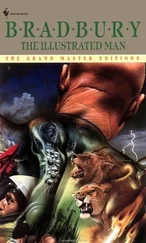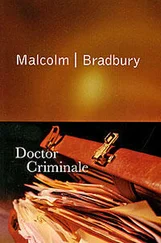Malcolm Bradbury - The History Man
Здесь есть возможность читать онлайн «Malcolm Bradbury - The History Man» весь текст электронной книги совершенно бесплатно (целиком полную версию без сокращений). В некоторых случаях можно слушать аудио, скачать через торрент в формате fb2 и присутствует краткое содержание. Жанр: Современная проза, на английском языке. Описание произведения, (предисловие) а так же отзывы посетителей доступны на портале библиотеки ЛибКат.
- Название:The History Man
- Автор:
- Жанр:
- Год:неизвестен
- ISBN:нет данных
- Рейтинг книги:3 / 5. Голосов: 1
-
Избранное:Добавить в избранное
- Отзывы:
-
Ваша оценка:
- 60
- 1
- 2
- 3
- 4
- 5
The History Man: краткое содержание, описание и аннотация
Предлагаем к чтению аннотацию, описание, краткое содержание или предисловие (зависит от того, что написал сам автор книги «The History Man»). Если вы не нашли необходимую информацию о книге — напишите в комментариях, мы постараемся отыскать её.
The History Man — читать онлайн бесплатно полную книгу (весь текст) целиком
Ниже представлен текст книги, разбитый по страницам. Система сохранения места последней прочитанной страницы, позволяет с удобством читать онлайн бесплатно книгу «The History Man», без необходимости каждый раз заново искать на чём Вы остановились. Поставьте закладку, и сможете в любой момент перейти на страницу, на которой закончили чтение.
Интервал:
Закладка:
'Come along and meet some people,' says Howard; he puts his hand on her arm. The arm, surprisingly, resists. 'I've met some,' says the girl, 'now I'm digesting them.'
'Are you enjoying yourself?' asks Howard. 'I'm enjoying myself fine,' says the girl. 'I'm enjoying some of the other people as well.'
'But not all of them,' says Howard. 'I'm very discriminating,' says the girl. 'What's your name?' asks Howard. 'Oh, I'm invited,' says the girl. 'Everyone's invited,' says Howard. 'Oh, that's good,' says the girl, 'because I wasn't invited. I was brought by someone who's gone.'
'Who's that?' asks Howard. 'He's a novelist,' says the girl. 'He's gone home to write notes on it all. Were you invited?'
'I invite,' says Howard, 'I'm the host.'
'Och,' says the girl, 'you're Dr Kirk. Well, I'm Miss Callendar. I've just joined the English Department. I'm their new Renaissance man. Of course I'm a woman.'
'Of course,' says Howard. 'That's good, because I like women.'
'Aye, I've heard about that,' says Miss Callendar, 'I hope you're not wasting any of your valuable time trying to get after me.'
'No,' says Howard. 'Good,' says Miss Callendar, holding up the marble egg, and looking at it. 'I just love small objects like this, I could hold it for hours. Am I keeping you from your party?'
The party booms around them. Howard stares at Miss Callendar, who is somehow outside it. She leans against the mantelpiece, her white hat shading solemn, dark brown eyes that look back at him. Behind her, over the mantelpiece, is a domed, round mirror; Howard sees that they are both reflected in it, on the tilt, portrayed at a foreshortened angle, as in some conscientious modern film. There is her dark head, capped with its white decorated hat, the nape of her neck, her tapering long blue back; there is himself, facing her in the adversary position, his economical, fierce-eyed features staring; beyond them both is a realm of space, and then the moving mannequins of the party. 'You were in a fight with the revolutionaries,' says Howard. 'That's my trouble at parties,' says Miss Callendar, 'I get into fights.'
'Of course,' says Howard, 'for perfectly good reasons these kids don't trust anyone over thirty.'
'How old do you think I am?' asks Miss Callendar. 'I don't know,' says Howard, 'you're disguised by your clothes.'
'I'm twenty-four,' she says. 'Then you ought to be one of them,' says Howard. 'How old are you?' asks Miss Callendar. 'I'm thirty-four,' says Howard. 'Oh, Dr Kirk,' says Miss Callendar, 'then you oughtn't.'
'Oh,' says Howard, 'there's also the question of right and wrong, good and bad. I choose them. They're on the side of justice.'
'Well, I can understand that,' says Miss Callendar. 'Like so many middle-aged people, you're naturally envious. All this youth charms you. I'm sure you'd allow it anything.' Howard laughs; Miss Callendar says, 'I hope you don't think I'm rude.'
'Oh, no,' says Howard. 'For the same reason, I'd allow you anything.' In the corner of his eye, Howard sees the movements of the party; hands are touching breasts, partners are transacting, couples are disappearing. 'You would?' says Miss Callendar. 'I thought you were trying to make a rebel out of me.'
'I am,' says Howard. 'But what could I rebel about?'
'Everything,' says Howard. 'There's repression and social injustice everywhere.'
'Ah,' says Miss Callendar, 'but that's what everyone's rebelling about. Isn't there anything new?'
'You have no social conscience,' says Howard. 'I have a conscience,' says Miss Callendar. 'I use it a lot. I think it's a sort of moral conscience. I'm very old-fashioned.'
'We must modernize you,' says Howard. 'There,' says Miss Callendar, 'you won't allow me anything.'
'No,' says Howard. 'Why don't you let me save you from yourself?'
'Och,' says Miss Callendar, 'I think I know just how you'd go about that. No, I'm afraid you're too old for me. I never trust anyone over thirty.'
'What about men under thirty?' asks Howard. 'Oh, you're prepared to vary, if necessary,' says Miss Callendar. 'Well, I don't trust many under it, either.'
'That doesn't leave you much room for manoeuvre,' says Howard. 'Well, I don't manoeuvre much, anyway,' says Miss Callendar. 'Then you're missing out,' says Howard. 'What are you frightened of?'
'Ah,' says Miss Callendar, 'the new man, but the old techniques. Well, it's been very nice talking to you. But you've got a lot of people here to look after. You mustn't waste your time talking to me.' Miss Callendar puts the marble egg back in the basket on the mantelpiece. 'They're looking after themselves,' says Howard. 'I'm entitled to find my own enjoyment.'
'Oh, I could hardly claim to be that,' says Miss Callendar, 'you'd do much better elsewhere.'
'I also ought to save you from your false principles,' says Howard. 'I may need it one day,' says Miss Callendar, 'and if I do, I'll promise to let you know.'
'You need me,' says Howard. 'Well, thank you,' says Miss Callendar, 'I take your offer of help very kindly. And Mrs Kirk's offer to take me to the family-planning clinic. You all offer a real welcome at Watermouth.'
'We do,' says Howard. 'An entire service. Don't forget.'
Howard walks back into the party; Miss Callendar remains standing by the mantelpiece. Someone has gone out and found more to drink; there is a more subdued air now, a softer sexual excitement. He passes through the bodies, face to face, rump to rump. He inspects the scene for Flora Beniform; there are many faces, but none of them hers. Later on, he is up in his own bedroom. There is deep and utter silence here, except for the sound of an Indian raga, playing on a record player in the corner. The curtains are pulled shut. The spotlight over the bed has been moved from its usual down-facing position, and made to shine upwards at the ceiling; some coloured material, the pink of what is probably a blouse, has been wrapped around it. The bed, with its striped madras cover, has been pushed away from its central place, and is in a corner of the room, under the window. Around the room in the quiet, a circle of people are sitting or lying, touching or holding each other, listening to the rhythm and movements of the music. They are a group of formless shapes, with heads jutting, hand: reaching out, held together by arms that thread from one shape to the next. Joints are passed from hand to hand; they light with a red glow as someone draws, and then they fade. Howard takes in the wordless words of the music; he lets his own room grow stranger and stranger to him. Barbara's housecoat and her caftan, hanging on the hook behind the door, change colour and transpose into pure form. The shine of the misshapen handles on the old chest of drawers, bought in a junk shop when they were furnishing the house, become a focus of colour, a bright, mysterious knot. The wine and the pot make rings inside his head. There are faces that take shape and dissolve in the watery light: the faces of a girl with freaked green eye-rings and white powdered cheeks, of a boy with a skin that is the shade of wet olive. A hand waves idly near him, at him; he takes the joint; retains the hand, turns to kiss the unsexed face. His mind relishes ideas, which rise like smoke, take shape as a statement. The walls shift and open. He gets up and goes, past hands and bodies and legs and hips and breasts, onto the landing.
He opens the door of the toilet. There is a run of water, and a voice that says: 'Who's Hegel?' He shuts it again. The house is quieter now, the party dissipated from its noisy social centre into numerous peripheries. He goes down the stairs. Macintosh sits there, and next to him Anita Dollfuss and her little dog. 'The baby,' says Howard. 'It hasn't started yet,' says Macintosh, 'they think it was all some kind of false alarm.'
Читать дальшеИнтервал:
Закладка:
Похожие книги на «The History Man»
Представляем Вашему вниманию похожие книги на «The History Man» списком для выбора. Мы отобрали схожую по названию и смыслу литературу в надежде предоставить читателям больше вариантов отыскать новые, интересные, ещё непрочитанные произведения.
Обсуждение, отзывы о книге «The History Man» и просто собственные мнения читателей. Оставьте ваши комментарии, напишите, что Вы думаете о произведении, его смысле или главных героях. Укажите что конкретно понравилось, а что нет, и почему Вы так считаете.











